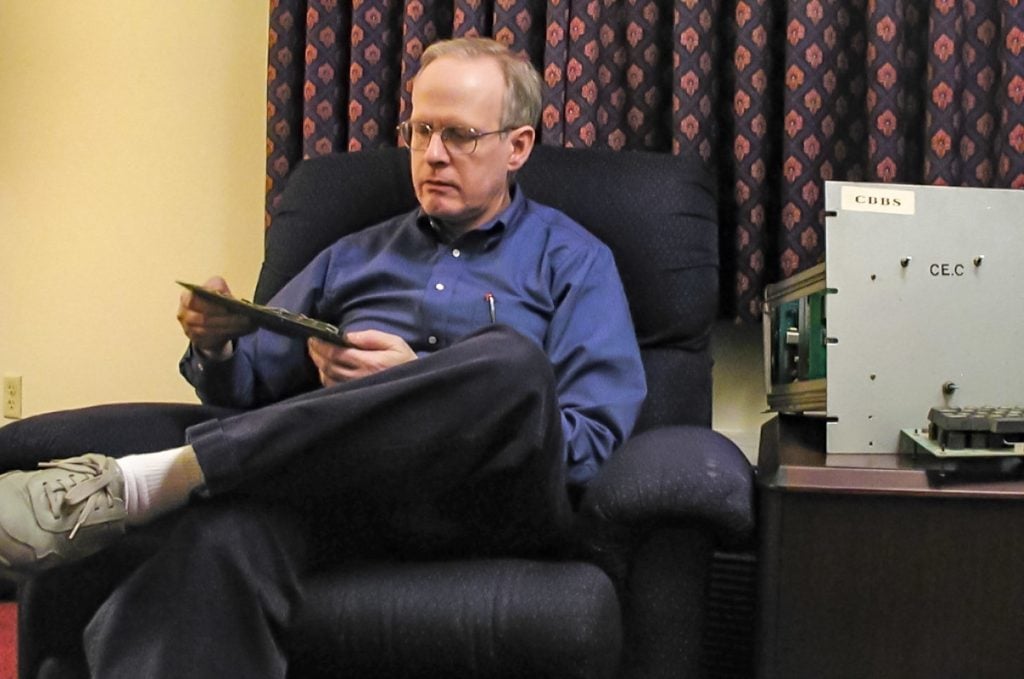Networking / Tech Culture“>Steven J. Vaughan-Nichols”>
As a JavaScript developer, what non-React tools do you use most often?
✓
Angular
0%
✓
Astro
0%
✓
Svelte
0%
✓
Vue.js
0%
✓
Other
0%
✓
I only use React
0%
✓
I don’t use JavaScript
0%
2024-10-17 14:00:22
Before Facebook, the Late Ward Christensen Booted Up the First Social Network
Ward Christensen, co-creator of the first bulletin board system and inventor of the XMODEM data transfer protocol, pioneered today’s internet has died.
Oct 17th, 2024 2:00pm by

Back in the 70s, if you wanted to be online, you had to be a college student, researcher, or in the military to be on the internet. That was it. Joe or Jane User? Forget about it. Then, during a Chicago blizzard, a young computer scientist, Ward Christensen, and his buddy Randy Suess built the first Bulletin Board System (BBS). This enabled people to dial in via a 300 Bit Per Second (BPS) modem to a computer to share messages. They’d made the first step to the popular, free internet we all use every day now.
Of course, that wasn’t the plan. The idea was to share the Chicago Area Computer Hobbyist’s Exchange (CACHE) newsletters in an online archive. Christensen, who passed away on Oct. 11, 2024, at 78, in Rolling Meadows, Illinois, never could have guessed what his work would create.
Their efforts weren’t the only ones. Today’s internet has several fathers. For example, online services such as CompuServe started as early as 1969. However, unlike the free BBSs, these services could cost as much as $30 an hour in 1970s dollars or $130 an hour in today’s money. Usenet, a social network of forums similar to today’s Reddit, was restricted to internet users. BBSs were the first free online service available to ordinary people. For many early online users, BBSs was their introduction to the networked world.
Before the BBS, Christensen invented the XMODEM file transfer protocol in 1977. This innovative method broke binary files into packets, ensuring reliable delivery over unstable analog telephone lines. XMODEM became a cornerstone of early online file sharing and inspired numerous subsequent file transfer protocols.
While considered inefficient by today’s standards, XMODEM established key concepts that are still used in file transfers. These include breaking data into packets for transmission, using checksums or CRCs for error detection, and implementing handshaking between sender and receiver.
Thanks to XMODEM, people began sharing files with one another. This, in turn, helped create shareware and freeware. In those days when PC users had to buy software, these gave people an inexpensive way to use end-user software.
Despite his monumental contributions to today’s online world, Christensen was known for his humility. He spent most of his career at IBM from 1968 until his retirement in 2012. Colleagues and friends remember him as a quiet, gentle person who never sought the spotlight for his groundbreaking work.
I knew him myself in the 80s. He was an unassuming man. You’d never know that, at the time, he was such an influential figure. Over the years, his contributions have been forgotten. Today, only a handful of BBSes are still running, and internet file-transfer protocols have long superseded XMODEM. Still, the impact of his pioneering work is still felt in our 2024 online world.
YOUTUBE.COM/THENEWSTACK
Tech moves fast, don’t miss an episode. Subscribe to our YouTube
channel to stream all our podcasts, interviews, demos, and more.
TNS owner Insight Partners is an investor in: Bit.
This post was originally published on this site be sure to check out more of their content








